With US-style writers’ rooms becoming increasingly common in the UK, Screen talks to several big-name TV writers about the rise of the ‘showrunner’ role on this side of the Atlantic.
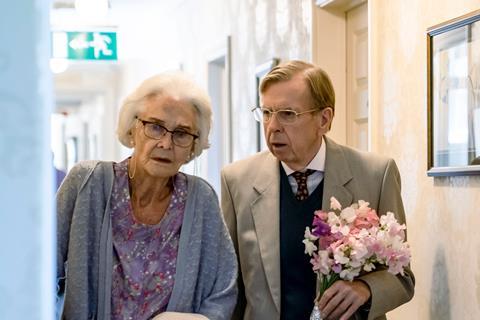
Teamwork may make the dream work across the pond, but in British screenwriting, the dream has traditionally involved a quiet garden shed, endless cups of tea and leaving the business of spreadsheets to non-writing executive producers.
Such was the old-school, authorial system of UK television writing, custom-made to fit BBC dramas that ran for two or three five-part runs, took a couple years off, then returned for a Christmas special before calling it a day. In the last decade, however, as America’s influence has become increasingly pronounced in the UK through the global streamers, British writers have had to adapt to new ways of working.
While many top UK screenwriters still single-handedly pen shows, US-style writers’ rooms are more common and most writers at the top of their game are not just filing scripts and scurrying back to the shed. They are rolling up their sleeves and working closely with fellow executive producers to hammer out a creative vision for a series.
Assuming control
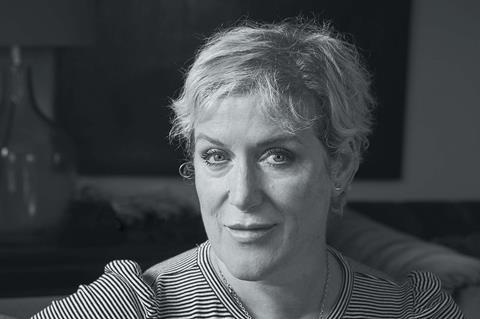
The US term ‘showrunner’ — used to describe a person, usually the show’s creator, who has overall creative authority and management responsibility for a television programme — is slowly being adopted in the UK, as more and more writers are demanding creative control and wondering why the expectations of writers’ rooms between the UK and US still feel like an ocean apart.
With a career spanning 20-odd years, veteran UK TV writer Sarah Phelps is always booked and busy. Her long list of credits include Agatha Christie adaptations And Then There Were None and Ordeal By Innocence and limited series A Very British Scandal and Dublin Murders, while she recently collected the best limited drama prize at the Bafta TV Awards for The Sixth Commandment. But decades into her writing career, Phelps could not tell you what it is exactly that a showrunner does. “If somebody put a gun to my head, I would still not be entirely sure what [showrunner] means,” she says. “It’s bandied around a lot, and in the UK everybody talks about writers’ rooms and showrunning, but I don’t really know what it encompasses.”
For now, ‘showrunner’ is not an official title applied in UK writers’ contracts, but rather an informal term used in the industry, as per guidance by the Writers’ Guild of Great Britain (WGGB). “We are currently seeing an increase in shows employing UK-based writers attempting to adopt the writer/showrunner model,” reads the WGGB guide, published in 2020. While the trend was described as a “welcome” opportunity for writers to better harness their creative vision, “it is unfamiliar territory for many people working in British television.”
Phelps has been a guest writer on various shows (she has penned 97 episodes of the soap EastEnders, for example) but has never run a writers’ room. She prefers to write alone, as she is usually focused on limited dramas of around five or six episodes, and the occasional eight-parter — the types of shows that tend to warrant a more “authorial” approach.
There is a difference, of course, between writing alone and working alone. Phelps has been an executive producer on the majority of her shows over the last 10 years — a trajectory shared by most UK writers who reach a certain level of experience and expertise. On The Sixth Commandment, she describes working in a “very tightly knit and collaborative way” with producer Fran du Pille and director Saul Dibb to deliver the show to budget and on schedule.
“That’s our job together, with separate roles for me as writer, Saul as director and Fran as the producer,” says Phelps. “And then, the next level up is the executive producer with oversight over the edit, post-production and any kind of issue that comes up, such as somebody getting Covid.”
All joking aside, Phelps has clear ideas about showrunning. “It’s a view over the entire show, where you’re involved in the nitty gritty of production and budgeting and everything else,” she says. “But I look at those roles and what other people achieve with them, and I’m just dry-mouthed with admiration — and fear.”

She is not alone in feeling awestruck but slightly wary of the US model. Joe Barton (Giri/Haji, The Lazarus Project) is one of the UK’s most sought-after writers, with big projects in the pipeline including Netflix’s Keira Knightley-led thriller Black Doves in post-production and Sky’s Amadeus, starring Will Sharpe, currently filming in Budapest.
Like Phelps, Barton writes most of his shows alone and also serves as an executive producer — in theory, the two key roles that comprise showrunning. His duties encompass creative decisions around casting, picking heads of department and joining the edit. But Barton vows he operates in a way that “is definitely not full Hollywood showrunner”.
“I don’t do a lot of the things that would be expected of me [as a showrunner], which, as I understand it, is a sort of mix of creative and admin that seems really mad to me,” says Barton. “Whenever I hear that, as a showrunner, you’re working on the budget and stuff like that, I’m always baffled. Like, what do you mean ‘the budget’? It’s mad.”
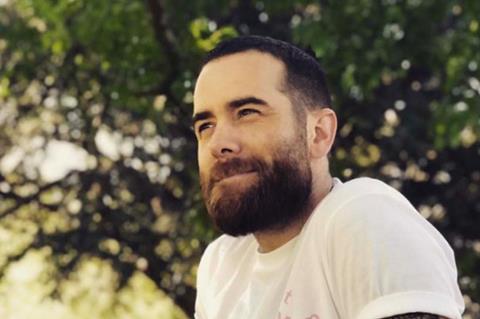
Barton adds: “I’ve never gotten a television show away in America. My biggest experience of that sort of environment was on the Batman show.” The writer famously replaced Boardwalk Empire creator Terence Winter on Matt Reeves’ Max TV spin-off from his feature The Batman, only to be replaced himself by Antonio Campos when the show changed direction again a year later.
“In America, you have everything funnelled through one person, and you have to wait and see if they agree or don’t agree with what you think,” says Barton, “whereas [my projects in the UK] feel a bit more like communal collaboration.”
Last year, Barton was attached to write a Michael Bay action drama series for Prime Video, about an American bounty hunter working south of the border — a job that would have required him to be on a Mexico set for six months — but had to exit due to the WGA writers strike, which stretched from May to late September. How does he feel about the missed opportunity?
“I feel totally fine,” says Barton. “Honestly, it kept me awake at night. I was like, ‘I’ve agreed to do this thing, and what happens when I don’t know what to do? I’ll end up in Mexico, with all these people looking at me, expecting me to have answers to their questions, and I won’t have any.’ I’ve heard horror stories about showrunners who were just massively out of their depth, instantly.”
Indeed, most writers seem to know at least one person who showed some promise as a TV writer in the UK, only to be thrown into the deep end of US showrunning far too soon — with catastrophic results. “There are some things where it’s good to learn as you go, but showrunning is not one of them,” says Joe Murtagh, creator of BBC and Showtime thriller The Woman In The Wall. “[Some] things you should know before you go into it. And if you don’t, it can cause mistakes, or it can really slow things down. There just isn’t time for error in certain cases.”
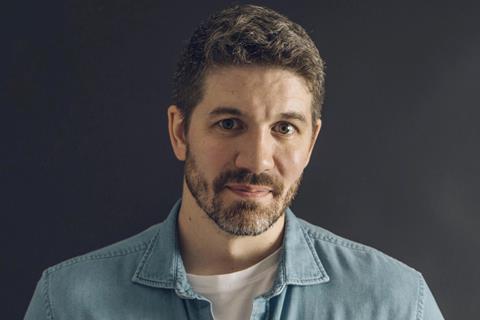
Based in Madrid, the UK-born writer, who got his start in short films, was exposed to US showrunning primarily through his role as a writer on FX’s upcoming limited series Say Nothing, set during The Troubles in Northern Ireland. Murtagh credits his showrunner, Joshua Zetumer, for creating an “absolutely fantastic experience” during the four-month writers’ room, which took place entirely over Zoom, with Murtagh braving a nine-hour time difference with Los Angeles.
“Josh truly inhabited that showrunner role, because he was just across everything at all times, and he took care of us in the writers’ room,” enthuses Murtagh. “He made it a complete safe haven for ideas.”
Financial limitations
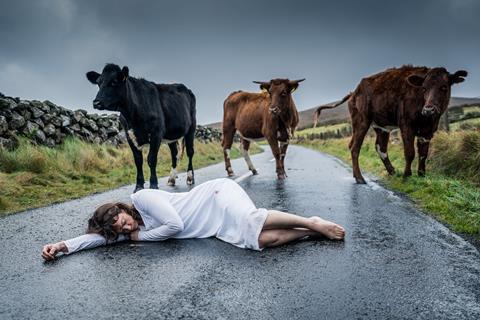
One critical difference between the US and UK is the time and space allowed for writers’ rooms, says Murtagh, who oversaw a four-week room in the UK for The Woman In The Wall, another Ireland-set story about the church-run Magdalene Laundries for “fallen women”. Many writers point to tight budgets as the main reason for the UK’s shorter, smaller rooms.
Nonetheless, Murtagh believes the UK is “slowly adopting the US model” where it is financially viable, and it serves as the foundation for his own work. “I certainly tried to emulate it as much as possible [on The Woman In The Wall]. I wanted to be on set every day that I could and sit through the edit. I wanted to be there in the sound mix. [It was about] sitting as closely to the director as possible and overseeing every element of the show.”
The sooner the UK model evolves to match the US the better, asserts Murtagh. “I don’t want to pretend that that stuff doesn’t scare me and I don’t just want everyone to leave me alone in a dark room, writing.” But when it comes down to it, the showrunner model “just leads to better TV”.
“UK-based writers are one foot in and one foot out of that old-school model, where they’re expected to be more of a writer for hire, deliver their scripts and then go away,” says Murtagh. “I think they could do with a little more empowerment, to challenge themselves to take a bit more creative control.”
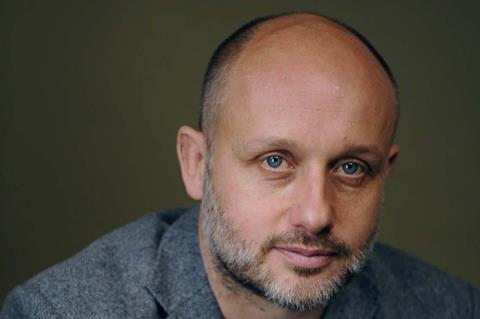
One writer who graduated to showrunner status is A Gentleman In Moscow creator Ben Vanstone, who progressed through shows such as EastEnders and Merlin before writing episodes on Netflix’s The Last Kingdom. Vanstone’s big break came with Channel 5 and PBS Masterpiece’s 2020 reboot of the veterinary drama All Creatures Great And Small, a BBC classic that ran for seven series before concluding in 1990.
Working alongside Playground Entertainment executive producer Melissa Gallant, Vanstone led the reboot for four series before stepping away last year to pursue other projects (the programme was recently renewed for series five and six). Vanstone says his experience on All Creatures Great And Small gave him the confidence to come into his own as a creative on the Paramount+ original A Gentleman In Moscow. The series stars Ewan McGregor and is an adaptation of the 2016 Amor Towles novel.
“I’m glad I didn’t have that full showrunner control until this project, because I think you need experience both in production and writing and across the board to be able to do it properly,” says Vanstone, who had final call on the entire creative vision for A Gentleman In Moscow.
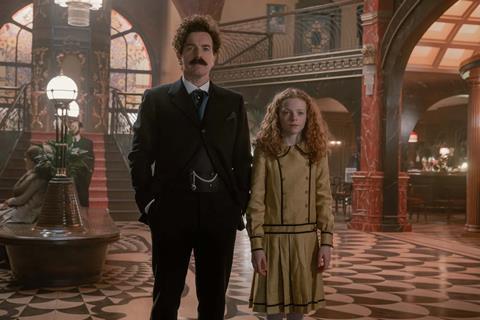
It is not just about managing the project, he notes, “It’s also standing up for the show with the network as well, and pushing back when you need to. It’s about knowing how to run the politics side of things as well as the creative.”
A watershed moment for writers on either side of the Atlantic came during last year’s WGA strike, when work ground to a halt for US writers and some UK writers who are also WGA members. While the WGGB was supportive of the WGA, the extent of its solidarity was limited as writers are free to work in the UK without being members of the British guild.
While many writers supported their US counterparts, some privately complained that any gains made by the WGA would have no immediate impact on UK contracts and would take time to trickle down.
For some, the disparity in union power and lack of a united front lay bare the endemic issues faced by UK writers. “What was weird about being a British writer when the strike was going on was all these American writers coming out [and saying], ‘We can’t let that happen!’ and ‘This would be a disaster!’” recalls Barton. “And a lot of us were sitting here going, ‘Well, that’s what it’s like here.’ We’re the cautionary tale.”
As it turns out, they were right to think as much. US showrunner Marc Guggenheim, co-creator of The CW’s Arrow and its spin-offs that became known as The Arrowverse, tells Screen International that anyone attending a pre-strike WGA meeting would have heard a lot of people fretting that the “studios are trying to turn [US showrunning] into the British model”.
“I don’t think it would be a stretch to say that we struck in large part to keep from turning the American model into the British model,” Guggenheim says. That statement, he notes, is based on the belief there are not big writing staffs on UK shows, but rather freelance writers supporting a single writer and writing individual episodes with very little job security.
Guggenheim is not wrong. A Gentleman In Moscow had a hybrid writers’ room that came together during the pandemic. “We didn’t have the archetypal American 16-week writers’ room where everyone’s in there together trying to break the story,” says Vanstone. “We were working with writers, spending weeks on Zoom, and then writers were going off and trying to work on a story together and deliver treatments.”
In the end, Vanstone notes that not many writers made it through the process. “I kind of wrote almost all of it,” he says, adding that some writers developed stories for key episodes. “In the end, it was me doing the main writing.”
Stifling sustainability
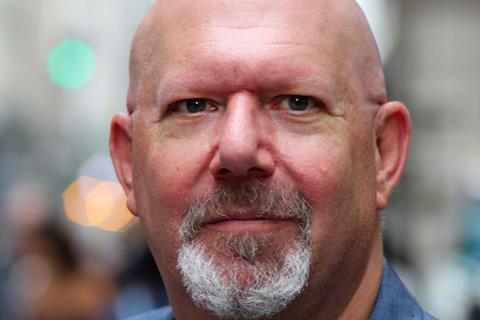
Guggenheim points out the UK model — which, when it does use a group of writers, effectively uses “mini rooms” — erodes the number of jobs available for writers, and stifles the sustainability of the profession, particularly for new entrants and candidates from diverse backgrounds.
The new WGA contract requires at least three writers for series of up to six episodes, at least five for seven to 12-episode shows, and at least six for shows of at least 13 episodes. The deal effectively killed off the mini room, which can see writers doing, in some cases, as much work as a regular writers’ room but making less money and rarely advancing on the production.
“When you’re only writing freelance episodes, by definition you are not involved in the production of those episodes, and you’re not involved in prep, in shooting, in post-production,” says Guggenheim. “As a result, you’re not getting critical experience that would enable you to run your own show someday.
“I’ll be honest,” adds Guggenheim. “I don’t know how the writers in Britain do it — the ones who are not showrunners, the ones who are just freelancing. How are they putting together enough work in any given year to [cover themselves]?”
The answer, right now, is that they are probably not. The impact of the WGA and SAG-AFTRA strikes on local production, combined with the streamers’ ‘Great Correction’, the advertising downturn and commissioning slowdown among broadcasters has meant the UK is experiencing a freelance crisis that has driven out many from the industry.
A February survey of 4,160 film and TV workers by below-the-line union Bectu revealed that 68% were out of work — only a small dip from the 74% that were unemployed in September 2023 amid the strikes.
“Since the streamers’ financial model radically stopped, the money seemed to dry up,” says Phelps. As a result, there has been “less chatter” about showrunning and concerns about whether the UK is catching up.
“The idea was that you’re delivering a huge amount of TV in a time-efficient way so that you could have a massive team of writers writing loads of episodes, and filming as you were writing,” continues Phelps. “I’ve heard less about it since the crisis of confidence among the big streamers and you saw things collapsing and people disappearing.”
Vanstone agrees that the golden years of new writers getting commissions and “there not being enough writers to fill the jobs” are gone. “People are going to refer to some tried-and-tested voices. Rightly or wrongly.”
Murtagh, one of the showrunner model’s biggest advocates, is happy to sit tight on those big ideas and bide his time. “I’ve got lots of things I’d be excited to make that I just can’t get made right now,” he says. “I’m putting them in a drawer and staying excited, and hoping times will change eventually, so this slightly more expensive, outlandish idea of mine can get made.”

























No comments yet